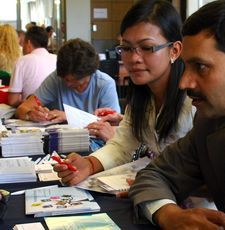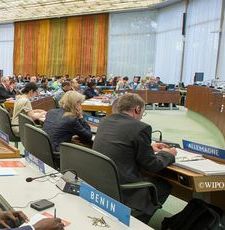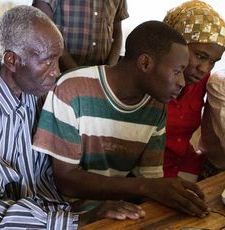ABOUT THE RESOURCE
In 2011-2013 EIFL provided financial support to 34 projects that implemented national and institutional open access (OA) advocacy campaigns to reach out to research communities and OA publishing initiatives.
Through small grants and support from their own institutions, the projects engaged in a wide variety of campaigns and activities, including: holding workshops, creating websites, building institutional OA repositories, creating e-learning courses, and implementing OA publishing platforms.
The case studies resulting from the projects reveal impressive first-time achievements and will help increase the availability of research literature in developing and transition countries.
Learn more about the key achievements for this institutional OA campaign in Serbia below. You can access the full case study (strategies, tactics and tools, success stories and lessons learnt) by clicking on the download button.
About the project in Serbia
University of Belgrade is one of the largest universities in South Eastern Europe with 90.000 students and 7.000 staff members. In 2011 the University of Belgrade signed the Berlin Declaration on Open Access (OA) to Knowledge in Sciences and Humanities expressing a general support of OA principles. But there was a need to raise awareness of faculty and students at different institutions and to encourage them to practice OA. The OA advocacy campaign's focus was on providing information on OA in general and on encouraging students and professors of the University of Belgrade to comply with the guidelines provided by central administration of the university that encourages usage and production of OA research outputs (in particular, the mandatory submission of electronic versions of all PhD theses (ETDs) completed in 2012 and onwards to the OA repository).
Key achievements
- The advocacy campaign reached over 1000 stakeholders directly, through 30 workshops organised at faculties and institutes of the University of Belgrade. For most of the participants, this was the first time that they learned about OA and for many others key questions were answered. In the workshop evaluations, participants expressed their positive reactions to the OA initiatives presented.
- An OA champions group was formed.
- There was an increased visibility of the library with regards to the OA movement due to the large number of attendees at library sponsored events.
- Print and electronic materials were widely distributed as follow up to the workshops in order to reinforce the interest and knowledge gained at the workshops. The materials were also distributed to a variety of other stakeholders unable to attend.
- The University library launched a new website that now provides easier discovery of OA resources via a new, federated search engine.
- ETDs started to be deposited in compliance with the guidelines provided by the central administration of the university (currently 50 ETDs and growing, most of them are OA).
I will publish the results of my PhD related research in an OA repository so that everyone can benefit from it.
SHARE / PRINT









